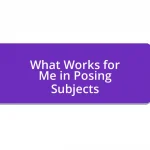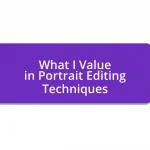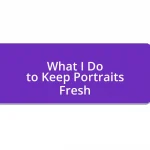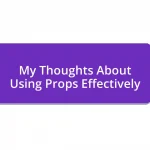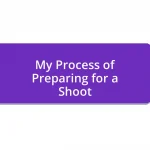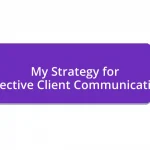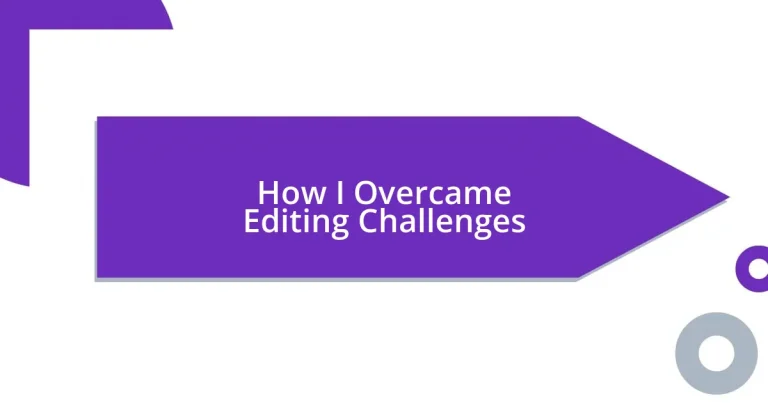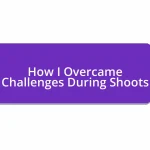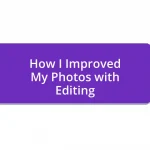Key takeaways:
- Identifying personal editing weaknesses, such as overlooking grammatical errors and over-explaining ideas, is crucial for growth.
- Effective time management strategies, like creating timelines and prioritizing tasks, can alleviate editing pressure.
- Seeking feedback from trusted colleagues enhances editing skills and can lead to significant improvements in writing.
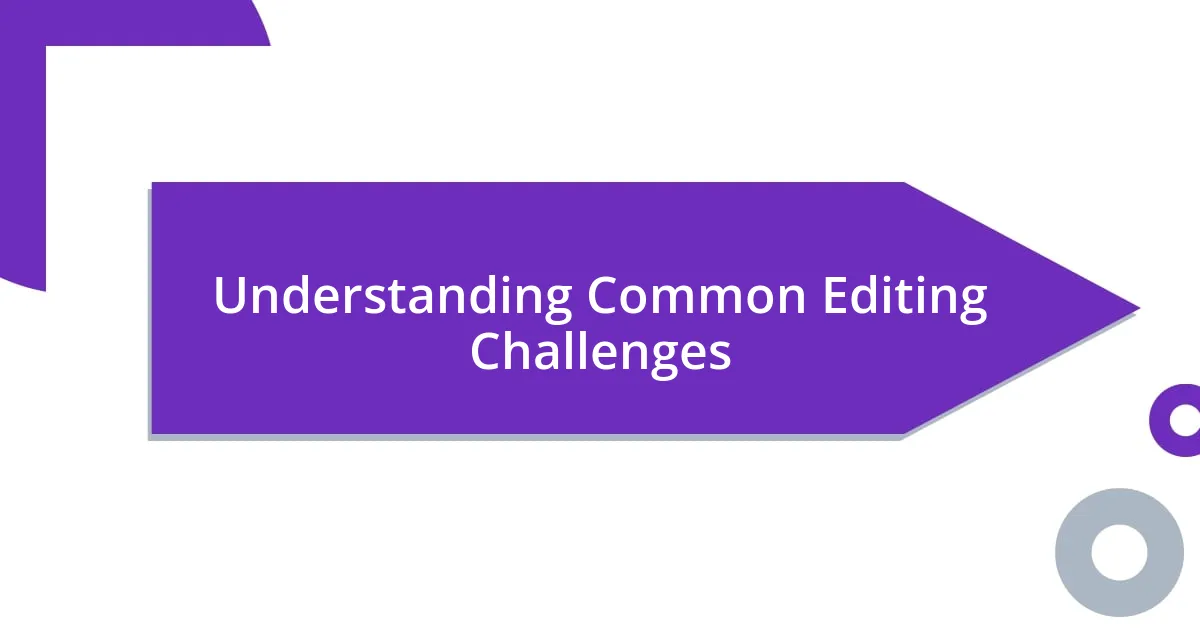
Understanding Common Editing Challenges
Editing can be a daunting task, and I remember grappling with this during my early writing days. One of the most common challenges I faced was distinguishing between essential content and filler. Have you ever found yourself second-guessing whether a paragraph truly adds value? It’s frustrating to realize you’ve poured time into writing something that doesn’t serve your message.
Another hurdle I encountered was maintaining consistency throughout my work. For instance, I once wrote an article and fluctuated between different tones—one minute it was conversational, the next academic. This inconsistency can leave readers bewildered. It makes me wonder, how do we find that sweet spot between formal and casual without losing our unique voice?
Additionally, I often struggled with the emotional aspect of editing. I would become overly attached to my original words, feeling like they were a part of me. Have you ever felt that connection to your writing? Facing the need to cut or change those words can bring on a wave of vulnerability. However, embracing the editing process as a necessary step for clarity and impact can transform that initial resistance into a deeper understanding of one’s craft.
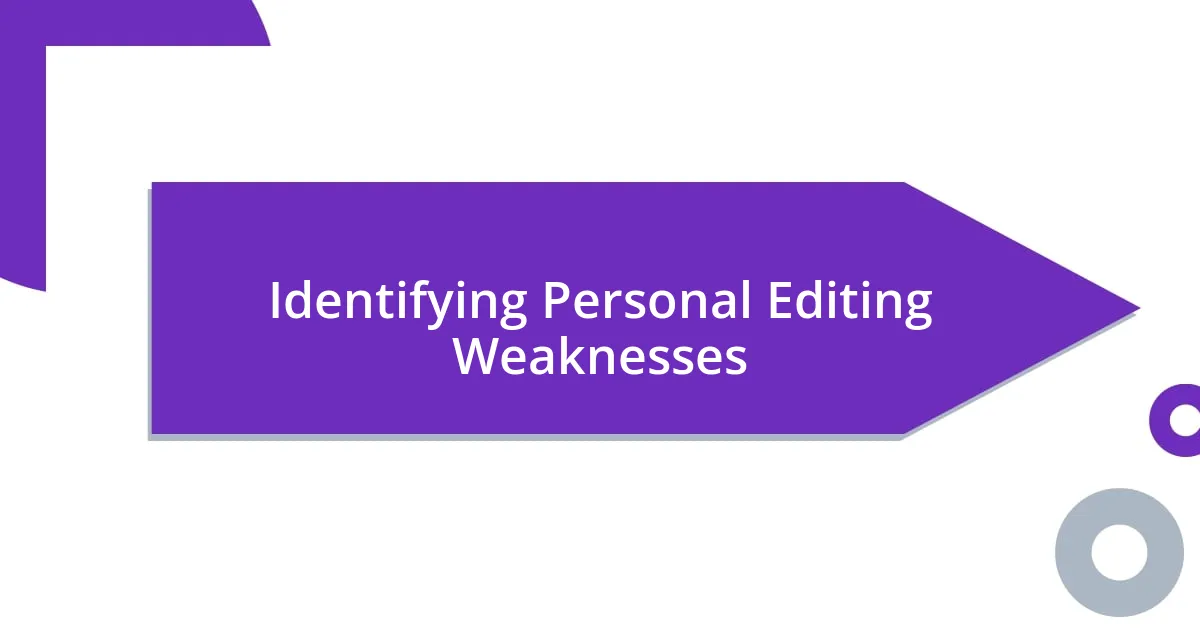
Identifying Personal Editing Weaknesses
Identifying my personal editing weaknesses has been an eye-opening journey. For instance, I realized that I often overlook grammatical errors while immersed in the creative flow of writing. This nagging tendency to focus more on the content rather than the mechanics used to deliver it sometimes led to embarrassing mistakes. Have you ever missed a typo in an otherwise polished piece? It’s a wake-up call, reminding me how essential it is to step away and view my work with fresh eyes.
Another weakness I’ve identified is my tendency to over-explain ideas. I get so passionate about my topics that I sometimes inundate the reader with details that overwhelm rather than clarify. This is a challenge I grapple with, especially when I want to ensure my audience fully grasps my perspective. Have you ever caught yourself repeating the same point in a different way? It can feel comforting, but it doesn’t always provide the clarity we seek.
Lastly, I recognized a lack of self-confidence in my editing choices. There were countless instances where I would edit out what I initially considered my best lines, only to question myself later. I recall a time when I deleted a quote I loved, thinking it detracted from the overall message, only to realize it was perhaps the piece’s most striking element. I often wonder, how do we find the balance between being critical and trusting our instincts? This realization has taught me that editing is not just about fixing but also about embracing the aspects of our writing that make it uniquely ours.
| Weakness | Personal Insight |
|---|---|
| Overlooking grammatical errors | Focusing on content leads to missed mistakes. |
| Over-explaining ideas | Passion sometimes results in overwhelming detail. |
| Lack of self-confidence | Questioning editing choices can undermine trust in one’s voice. |
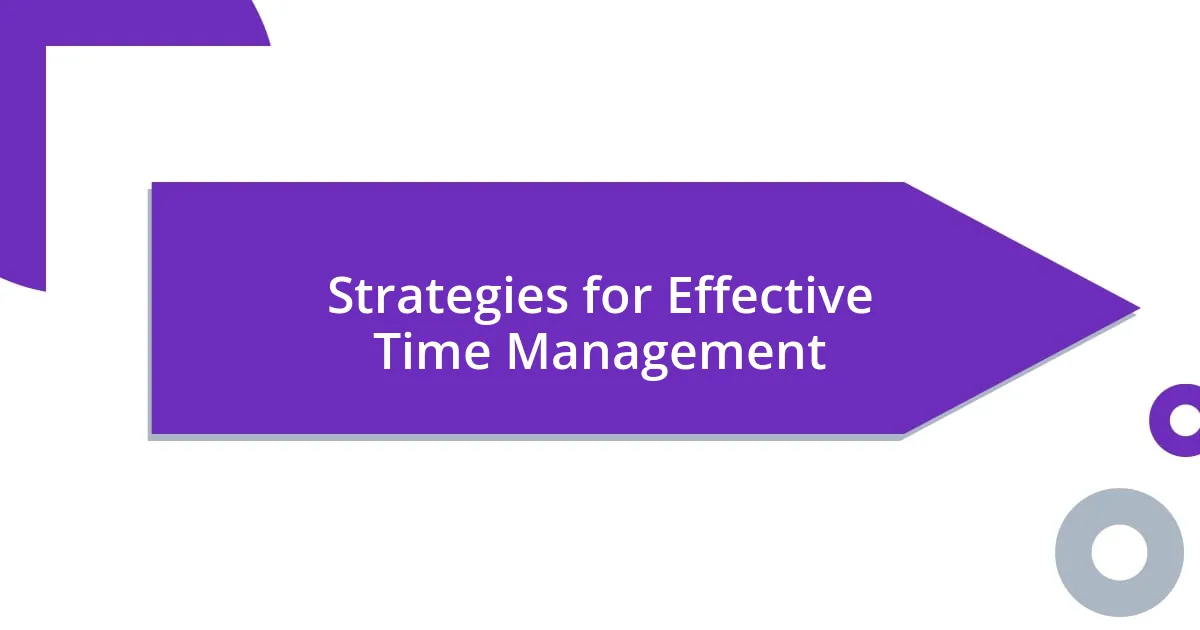
Strategies for Effective Time Management
Effective time management has been a revelation for my editing process. I used to find myself scrambling at the last minute, wrestling with deadlines that felt insurmountable. One day, after a particularly stressful editing marathon, I realized something had to change. Adopting strategies like setting specific goals and breaking my work into manageable segments helped alleviate that pressure.
Here are some practical strategies that really worked for me:
- Create a Timeline: I often sketch out a timeline for each phase of editing. This visual cue helps keep me accountable.
- Prioritize Tasks: I learned to identify which edits were crucial vs. those that could wait. This prioritization can transform a chaotic editing session into a more structured endeavor.
- Use Timers: Setting a timer for focused work periods, like the Pomodoro Technique, has given me bursts of productivity while preventing burnout. It’s both a motivator and a reminder to take breaks.
- Reflect on Progress: I take time to reflect on what I’ve accomplished at the end of each editing session. This practice not only boosts my morale but also clarifies what needs attention next.
Finding what works for me was crucial, and I encourage you to experiment with these methods to see what resonates.
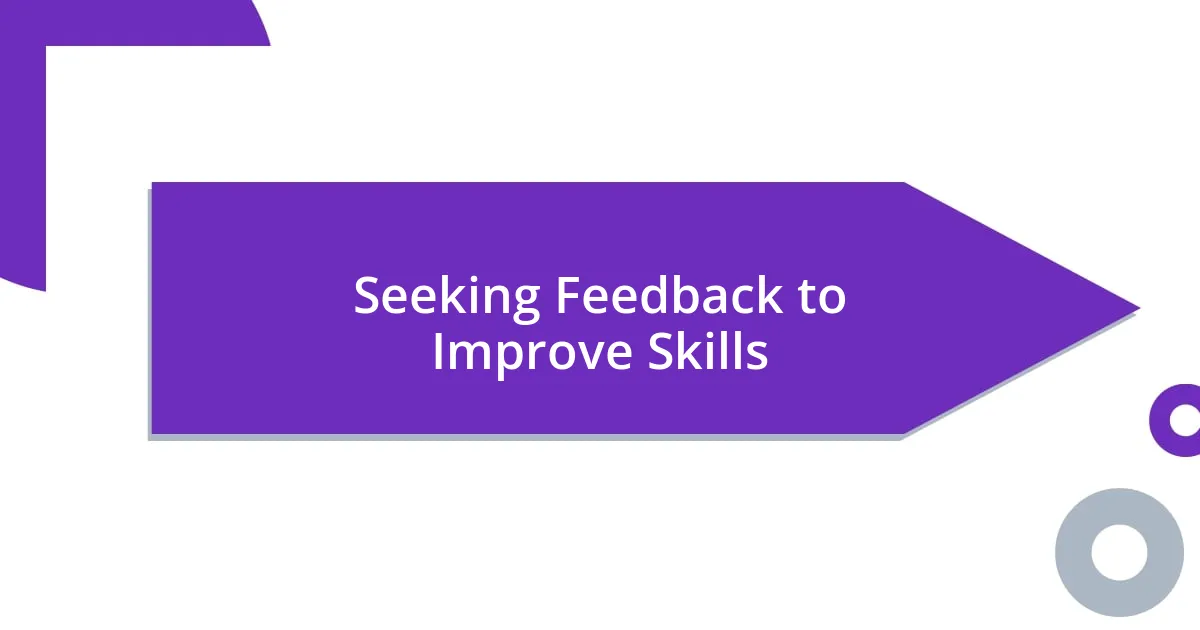
Seeking Feedback to Improve Skills
Seeking feedback has become an integral part of my growth as an editor. I remember the first time I bravely shared my work with peers; their perspectives opened my eyes to issues I hadn’t noticed. It’s incredible how another set of eyes can catch mistakes or suggest improvements that seem so obvious in hindsight. Have you ever been surprised by the comments of someone else? Their feedback not only helped refine my work but also built my confidence in my editing choices.
One thing I’ve learned is that not all feedback is equally valuable. I once took the advice of a friend who had a different writing style than mine, and while their suggestions were technically sound, they didn’t align with my voice. It made me realize the importance of seeking feedback from those who understand my objectives. How do you choose who to ask for feedback? I’ve developed a small circle of trusted colleagues whose insights resonate with my work. Leaning on them has become a reliable way to gauge my progress.
Integrating feedback into my editing routine was not without its challenges. At first, I felt defensive about my work, almost as if I had to protect it. However, over time, I learned to view feedback as a gift rather than a critique. There was a pivotal moment when a mentor pointed out a recurring flaw in my editing style—something I hadn’t even realized I was doing! Embracing that feedback spurred significant improvement and enhanced my editing process. Have you ever had a moment when constructive criticism transformed your craft? For me, it was a breakthrough that reshaped my perspective on editing as a collaborative journey.
